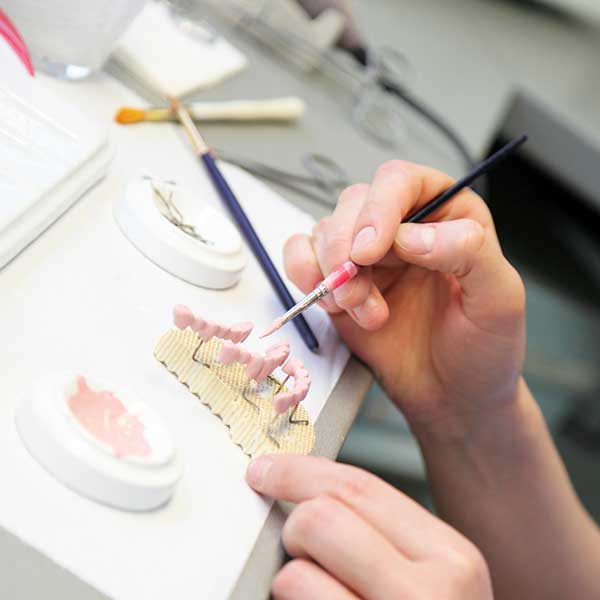 Veneers are one way that dentists can strengthen or improve the appearance of your teeth.
Veneers are one way that dentists can strengthen or improve the appearance of your teeth.
A veneer is a thin piece of porcelain or composite resin that a dentist bonds to your teeth. This can improve the appearance of discolouration, misaligned teeth or chipped or broken surfaces.
There are also different types of veneers based on their material. Porcelain veneers typically costs more than resin, and often takes longer to apply, but generally lasts longer. As well as being the stronger option, porcelain is also impervious to stains, so will not discolour or fade over time.
A resin composite may be used to better match the natural colour of your teeth, and is generally a more affordable option.
For porcelain veneers, the dentist will remove a slim layer off the front of your tooth in order to make space for the veneer. You will typically be given a local anaesthetic for this procedure, so make sure to ask your dentist about your options. He or she will create a mould of your teeth that will be used to make custom veneers, and in the meantime, you will be given temporary veneers. During your second visit, the temporary veneers will be removed and replaced with your custom ones. To bond the veneers to your teeth, a mild chemical will be used to roughen the surface of each tooth, then a resin glue will be applied to form a permanent binding.
Resin veneers can be completed during one dental appointment. In this case, the same chemical is used to create a rough surface on each tooth that helps the glue form a lasting bond between the teeth and the veneers. They are chosen based on how well they match the colour of your natural teeth, and are applied in layers. Once these veneers are finished, the dentist or prosthodontist will complete the job by hardening the resin with a bright light, then shaping and polishing for a natural look and feel.
You must care for your veneers with the same oral hygiene routines as you would use for your natural teeth – brushing, flossing and a healthy diet.
You should also be aware that veneers can chip or break when put under too much pressure, so it’s best to avoid chewing on hard materials such as ice cubes. Your Dentist will advise you on any specific instructions you should know to properly care for your veneers.
Contact Palmerston Dental Surgery on 08 8932 1544 to discuss Veneers and if they are right for you.
